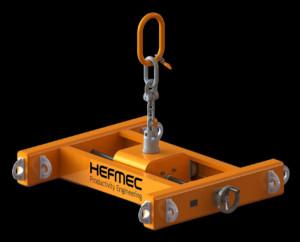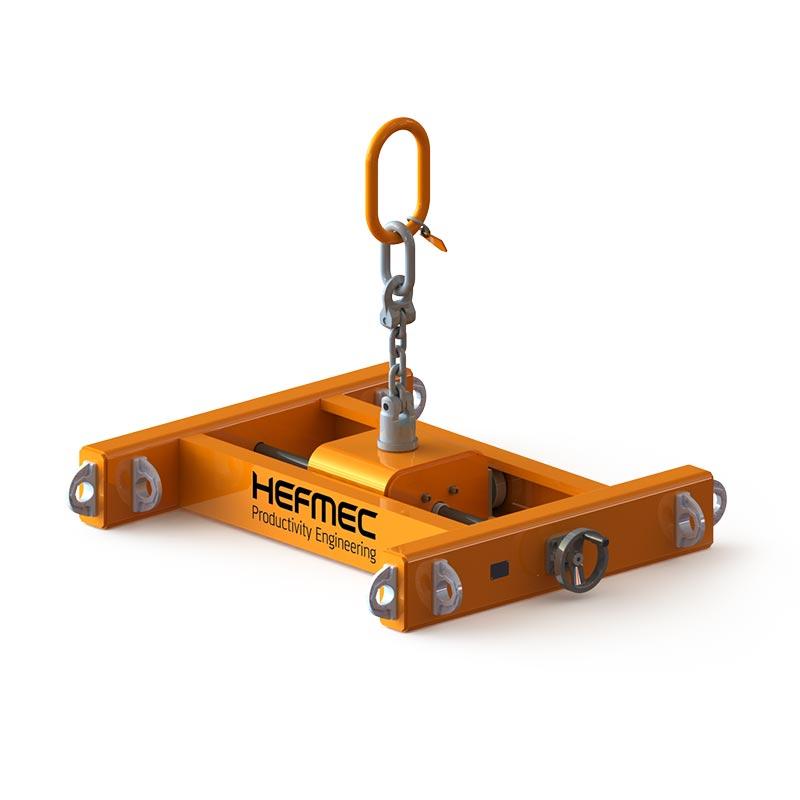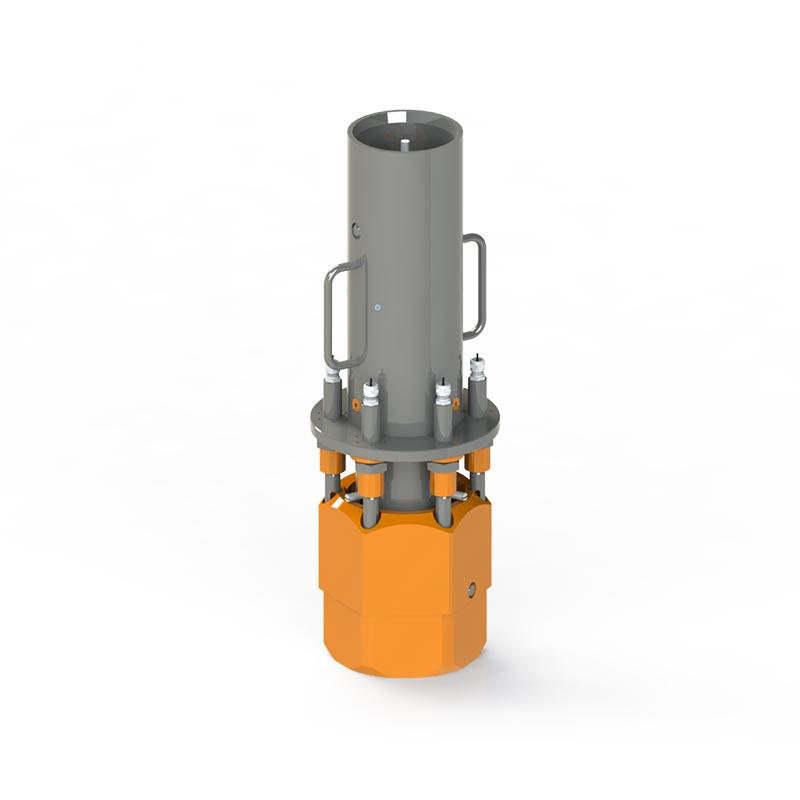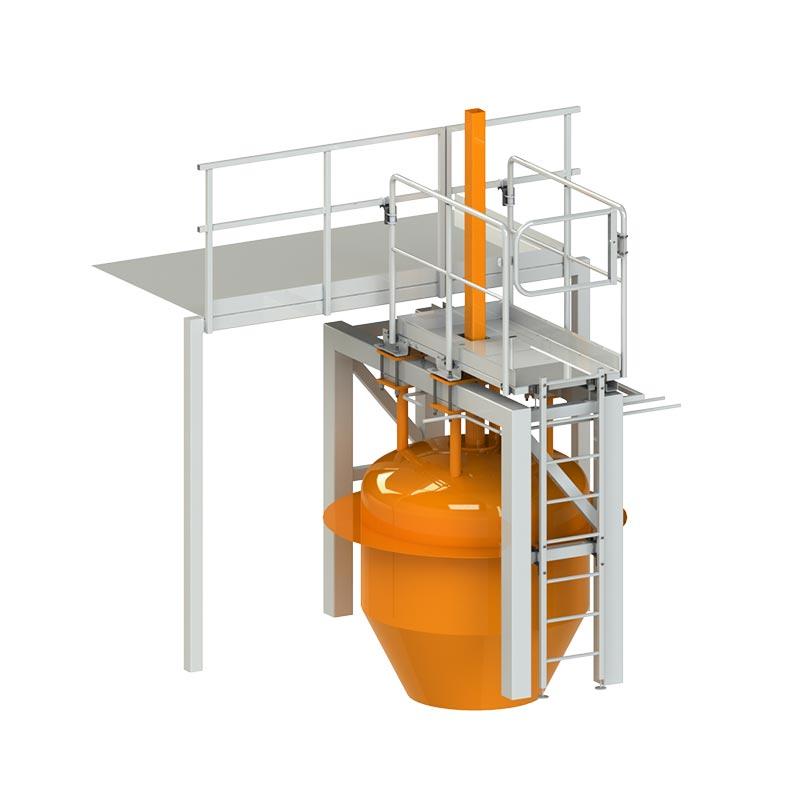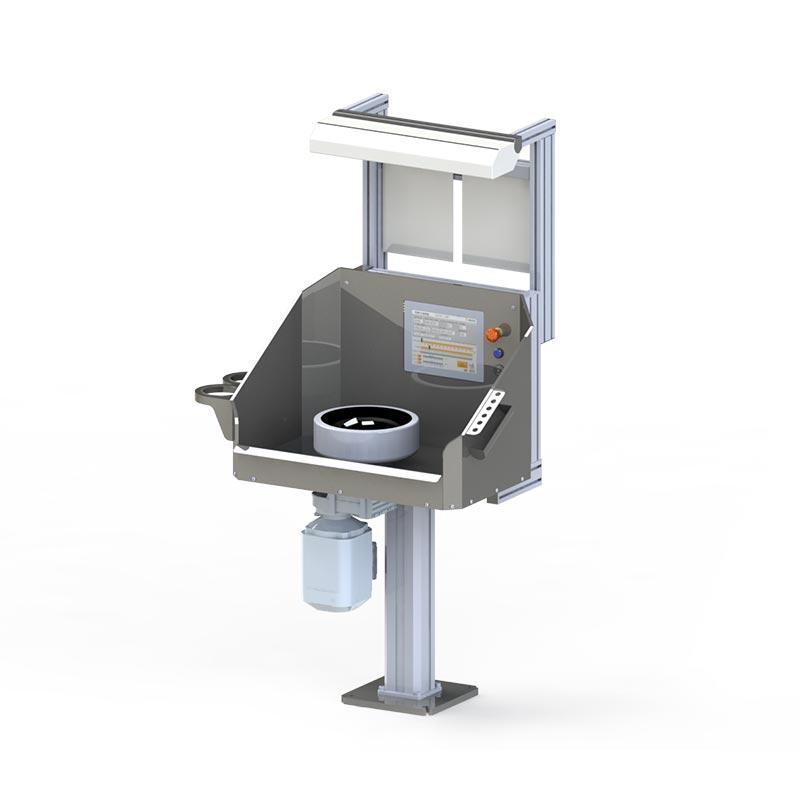The need for specialised equipment to handle heavy loads arises in a number of critical situations. When the load exceeds the capacity of conventional equipment, when the load is irregular in shape, when the working environment has special requirements or when safety regulations require special solutions, dedicated equipment is needed. Specialised equipment enables safe and efficient working in situations where conventional methods are inadequate or pose significant risks.
When do you need special equipment for handling heavy goods?
In industry, we often encounter situations where standard material handling equipment does not perform up to the required standard. Exceeding weight limits is one of the clearest signs – when the load exceeds the lifting capacity of standard equipment, more robust solutions are needed. Specially shaped or asymmetrical loads also require tailored lifting equipment to ensure safe handling.
Special conditions such as high temperatures, corrosive environments or explosive atmospheres require special equipment designed for these environments. Compliance with occupational safety regulations is critical – where workers’ health is at risk, specialised equipment can eliminate or minimise the risks.
The efficiency aspect also comes into play. When optimum flow is sought in production processes, specialised equipment enables smoother and faster material handling, which is reflected in increased productivity.
What special equipment is available for handling heavy goods?
A wide range of specialised equipment has been developed for the industry to meet the different challenges of handling heavy goods. Wide reach trucks and counterbalanced forklifts enable the handling of large loads on the shop floor, while specialised cranes such as overhead cranes, boom cranes and mobile cranes offer tailor-made lifting solutions for specific needs.
The range of lifting equipment is varied, including special lifting slings, lifting beams, lifting frames and lifting brackets for different loads. Special trolleys, skates and conveyors are available for transporting special shaped and heavy objects.
Hefmec offers a comprehensive range of specialised equipment for handling heavy goods, including piece turning tables, container tipping racks, bearing extraction and installation tools, and axle transfer, lifting and handling trolleys. Deliveries always include method design, the necessary operating and maintenance instructions and CE documentation.
How to recognise when existing tools are no longer sufficient?
Problems with material flow are often the first warning signs of inadequate equipment. When production lead times increase or transfer operations cause bottlenecks, it is time to assess the capacity of existing equipment. An increase in safety risks is an absolute red flag – the rise in near misses or accidents points to the need for safer, specialised equipment.
Workers’ stress is often reflected in increased fatigue or work-related injuries. If workers are subjected to excessive force or unergonomic working positions, specialised equipment can provide a solution to reduce human strain.
The decline in production efficiency is also an important indicator. When it is found that slow material flow is affecting overall productivity or causing quality problems, the need for specialised equipment should be identified to optimise the process.
Why is regular maintenance essential for specialised equipment?
The reliability of specialised equipment is directly linked to regular and proper maintenance. When equipment is in constant use in a heavy industrial environment, wear and tear is inevitable. Predictive maintenance prevents unexpected breakdowns and costly production downtime, while keeping equipment in working order.
Work safety is another critical aspect – well-maintained specialist equipment works as designed and minimises the risk of accidents. Regular maintenance also extends the life of the equipment, making the investment more cost-effective in the long run.
Hefmec offers comprehensive preventive maintenance services based on a planned maintenance programme. These services are significantly cheaper than corrective maintenance, which often has to be carried out in an emergency after production has already stopped.
How do Hefmec’s service and maintenance services support the handling of heavy goods?
Hefmec’s service and maintenance services are designed to ensure the continued functionality and maximum lifetime of specialised equipment. Scheduled maintenance is carried out on a regular schedule, where equipment is thoroughly inspected, worn parts are replaced and operation is ensured before any problems arise.
Our repair services operate with a fast response time to minimise production downtime. Our experts diagnose problems efficiently and carry out repairs professionally, using original or quality replacement parts. Our comprehensive spare parts service ensures rapid availability of parts in critical situations.
Our technical support is also available as remote advice, which means that minor problems can often be solved without a service visit. This service is particularly valuable when rapid assistance is needed to ensure continuity of production.
Key factors for the maintenance of specialised equipment in an industrial environment
A proactive maintenance strategy is one of the key elements in the maintenance of specialised equipment in an industrial environment. A maintenance programme based on regular inspections and servicing maximises equipment uptime and minimises unexpected production downtime.
Hefmec’s expertise is particularly evident in the tailored maintenance contracts that take into account the specificities of the customer’s operating environment. We offer the possibility to outsource all service and maintenance tools under a single contract, which clarifies the division of responsibilities and ensures a seamless service package.
In the future, the maintenance of specialised equipment for heavy goods handling will focus on digital solutions such as remote diagnostics and predictive analytics. These technologies will enable the identification of maintenance needs before failure occurs, further improving reliability and cost-efficiency in industrial processes.


